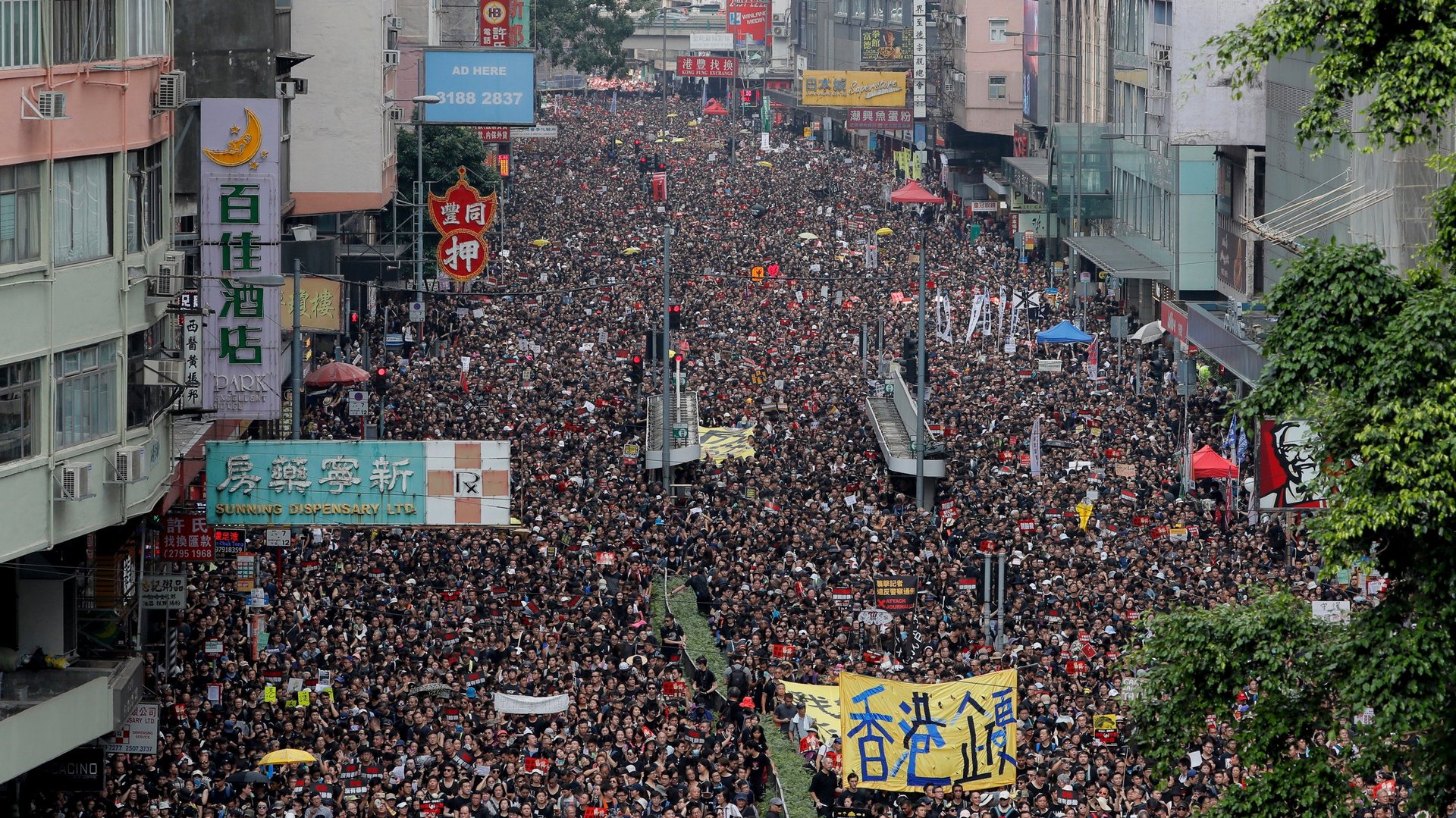From students to horse-racers, Hong Kong united against extradition
Massive protests are taking place in Hong Kong, demanding the withdrawal of a bill that would allow the extradition of criminals to mainland China. Demonstrators fear it will be abused by the government in Beijing.


Massive protests are taking place in Hong Kong, demanding the withdrawal of a bill that would allow the extradition of criminals to mainland China. Demonstrators fear it will be abused by the government in Beijing.
An estimated one million people marched on June 9, and the latest march on June 16 is estimated to include between 338,000 marchers, according to the official sources, and as many as two million, according to organizers.
What does it take to get one-seventh of the city’s population onto the streets? Self-initiated groups from all walks of Hong Kong society asked members to sign petitions against the extradition bill and fight for autonomy from China before the protests.
This has become an effective tactic to mobilize grassroots forces without identifying leaders and exposing them to potential risks, a lesson the protesters in Hong Kong learned from previous experience. A shared list of these these petitions (link in Chinese) offer a portrait of the grassroots organizational effort leading to massive turnout.
One thing is clear: The protesters were young. This is evident in the numbers of petitions signed by educational institutions. Colleges, high schools, and even elementary schools mobilized students in their fight against the bill.
Professional groups of all kinds also detailed how the passage of the bill could affect their fields. Petitions from IT workers, animators, lawyers, horse-racing professionals, mainlanders in Hong Kong, accountants, construction workers, outlined their reasons for joining forces with the demonstrators.
Even those who live abroad and couldn’t be present at the protests in Hong Kong found ways to voice their support.